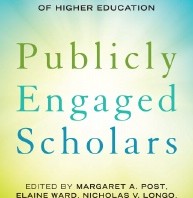- Facebook30
- Total 30
The past week has seen scathing reports of pervasive brutality in New York State prisons and the Chicago Police Department. Racism is clearly a factor, but I would like to highlight a different one. We must count on human beings to have bad motives. Racial animus and supremacy are important examples, but even in a racially homogeneous context, people cannot be trusted. Nor does it matter which principles we adopt or even sincerely espouse. It matters whether we are checked and limited by other people.
For example, no entity in the history of the world has had a stronger stated commitment to equality–or as much power and scope to expand equality–as the Chinese Communist Party under Chairman Mao. And yet that same Party is now an active proponent of the most rapacious and predatory forms of capitalism and is closely associated with billionaires. Why? Because it is in the interest of a ruling group to capture a lot of money, and a party without any rivals or limitations can do so–utterly regardless of its mission and philosophy.
In general, I am a fan of labor unions. They have several important advantages, one of which is countervailing power. In a unionized workforce, there is no longer just one institutional power (the owner); there are two. Gov. Scott Walker is trying to break the public employees’ unions in Wisconsin because they bring countervailing power against him.
But a public sector union that closely collaborates with a state government can obtain somewhat troubling monopoly power. Give the members of that union guns and handcuffs, and the dangers increase. Sentence individuals to live completely under the control of that group, insulated from public view, and the threat becomes alarming. In the US context, the specific content of the injustice may be racism, but a case like China reminds us that even in a racially homogeneous society, armed monopoly power never works out well.
Thus it is crucial to the New York case that the “New York State Department of Corrections and Community Supervision … has long been seen as subservient to the union,” and “the union is a formidable political force, protected in the Legislature, primarily by upstate lawmakers in districts where prisons are the biggest employers.” And the Chicago report, after citing racism and ends-justifying-the-means as two causes of police violence, cites a third: a lack of external accountability. “The collective bargaining agreements provide an unfair advantage to officers, and the investigating agencies—IPRA and CPD’s Bureau of Internal Affairs—are under-resourced, lack true independence and are not held accountable for their work.”
Note that both New York State corrections officers and Chicago police officers work for democratically elected governments. That is a check but an insufficient one because it isn’t pluralist. One government is one power with interests of its own. To the extent that we see progress in either case, it’s because of the countervailing power of other levels of government, the press, and social movements.
I support deliberative democracy. It is a much higher ideal than simple majoritarianism. I still don’t want everything governed by one big conversation, no matter how fair, free, and informed the discussion may be. We need organizations and groups that are impervious to public opinion, even reasonable and fair public opinion. I would also vote for social democracy, at least in a European context, but only on the proviso that it is shorthand for a mixed economy with multiple power centers, including autonomous firms. One Big Anything scares me, and our prisons and police forces just reinforce that fear.

